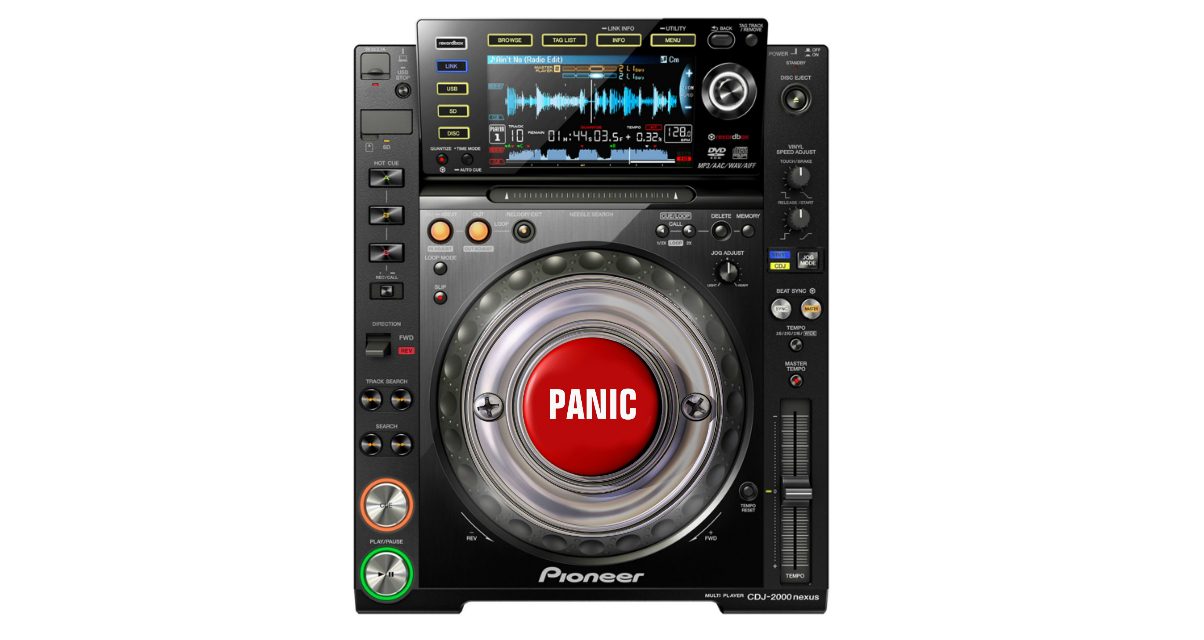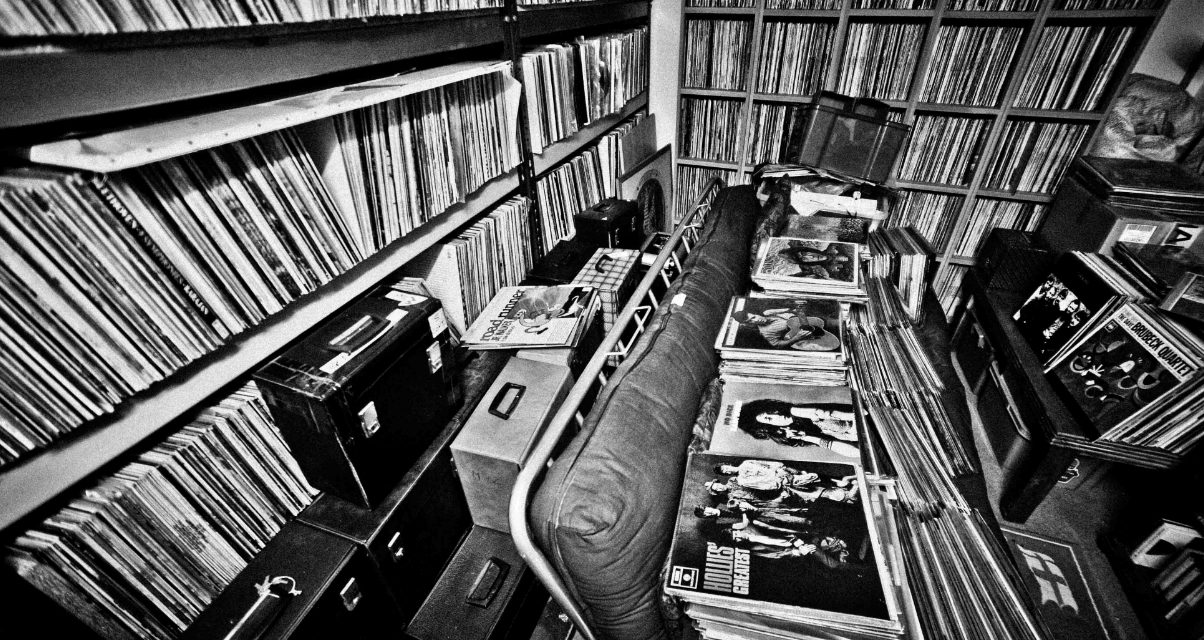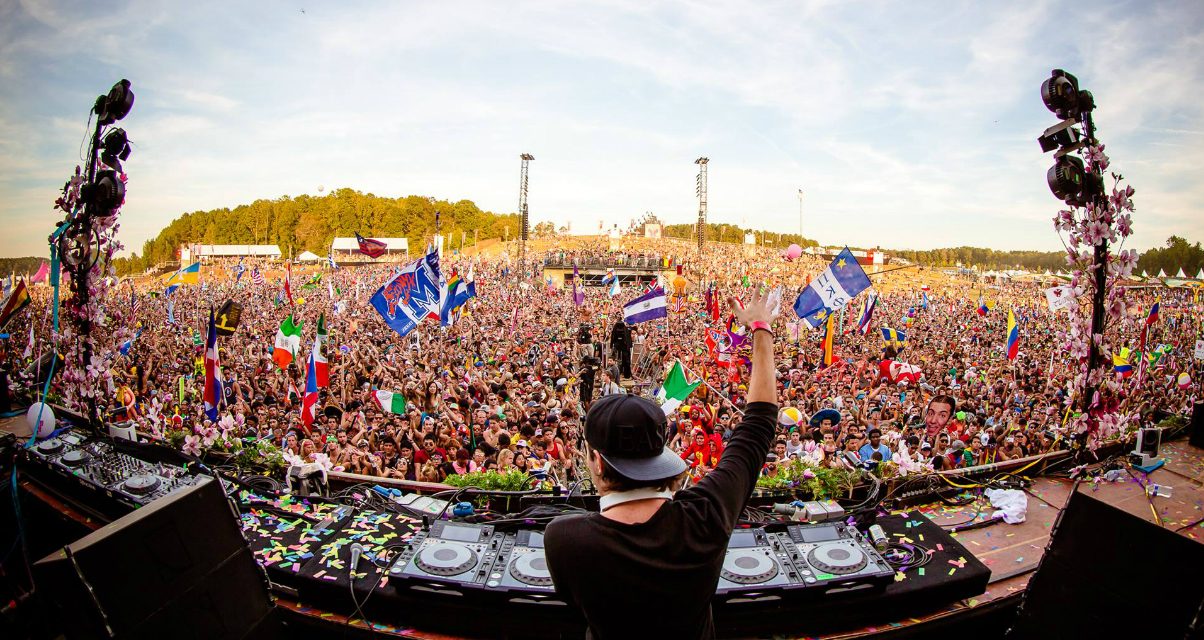
You’ve just bagged the gig of your dreams (or maybe even your first one). Awesome! You’ve been practising and preparing for it, which is great. You arrive at the venue, and the butterflies in your stomach begin to flutter. Your mind makes up all these scenarios where things go wrong. You finished an entire Starbucks Venti latte this afternoon, and your pulse is racing as pre-gig jitters kick in.
As you get behind the decks, your nerves get shot, sending your anxiety levels through the roof. Your hands are cold and clammy, and you can’t even plug in your leads without trembling. Sound familiar?
We’ve been there in some way, and there’s good news and bad news: The good news is that you’ll most probably do OK and it’s not the end of the world if something goes wrong. The bad news is that this sort of pressure situation happens to DJs of all levels, whether you’re a beginner gigging for the first time, or a veteran playing a big festival in a new locale for the first time.
Pressure is experienced by all DJs. So here’s how to manage it:
1. Reframe the gig

One of the big reasons we feel pressured before and during a performance is that we see it as a threat – a threat to our reputation as a DJ, a threat to our ego if we mess up or people make rude comments, etc.
The first technique to depressurise a performance situation is to reframe it: Think of the gig not as the potential downfall of your entire DJing career, but as a challenge that you’ve got to rise up to meet.
A veteran DJ gave me some great advice as I was about to go onstage one time. I told him I was nervous and especially anxious since it was a big show, and he said: “No, you’re not nervous, you’re just excited.”
Any public performance is a test of mental grit. Reframe it to bolster your confidence.
2. Scared you’ll mess up? It’s not the end of the world
Messed up a smooth segue? Forgot to drop a cue point? Accidentally stepped on the club’s power conditioner and shut off the entire system?
Here’s the cold hard truth: Your crowd probably doesn’t care as much as you do (unless your crowd consists of a bunch of DJs), for as long as they’re dancing. There is hardly ever a perfect DJ gig. Something always comes up, and that’s just the nature of being a musical performer. Plus, it’s the 21st century – making mistakes is most of the time OK as long as you learn from them and avoid committing them over and over.
Here’s a shortlist of DJs who’ve messed up big time at the biggest stages around the world. These can be considered totally career-damning moments, but these guys are still touring and still have a career!
- Calvin Harris
- David Guetta
- Ricardo Villalobos
- Tiesto
- Steve Aoki
Making mistakes is OK – it’s not the end of your DJ career, and you’re definitely not the first to make them! At worst (or best, depending on how you look at things), you’ll achieve some form of online notoriety. You’re still OK!
3. Prepare as much as you can, but always expect the unexpected

This happens to me at every single gig I prepare for: I download new music for the gig, carefully place old tunes I want to play in new playlists, and I make a special playlist of songs that I think I would end up playing, but I’m not sure.
I play the gig, and realise after the show that I only played less than half of what I prepared – everything else came from reading the crowd and controlling the vibe of the night.
I’ve formed this habit of packing double the amount of tunes because there are just so many things that can happen during a gig that can lead a night off in tangents. Instead of panicking (what am I going to play next? Where’s that request? Is this the edit I wanted to drop, or the bootleg?), preparing tracks ahead of time gives you a list of good songs to go through in a pinch, but also realise that it’s almost impossible to plan out an entire evening’s worth of music.
Same goes with gear – bring an extra set of leads, headphone adapters, and a mix on your phone in case things go awry in the DJ booth and you need to do some troubleshooting. And don’t forget that DJ emergency pack!
4. Remember you at your best

Here’s something fun: If you feel like you’re not good enough for this gig, remember the best ones you’ve already played at – this “highlight reel” reminds you that you’re capable of putting on a good show, even if you’re now faced with a bigger / different crowd and venue. This mental throwback builds confidence: You’ve done it before, and surely you can do it again.
Gigging out for the first time? Think about how well your practice sessions went, or the compliments you got for your online mixtape. Again, the idea here is to remind yourself that it’s entirely possible to pull this DJ thing off by virtue of the fact that you’ve already done it previously.
5. The bigger the gig, the more confident you’ve got to be

This is an important one, and while it sounds like it goes without saying, it really is easier said than done: Often, the reason we get so pressured to begin with is that we have negative thoughts about the outcome of our performance. To get around this, you’ve got to think even more positively about the outcome.
One way to build confidence before a high-pressure situation is to mentally rehearse your DJ performance. Athletes do this a lot: Apart from practising, basketball players think about shooting free throws, football players think about nailing free kicks, and so on.
It’s not “wu-wu” nonsense too – your subconscious mind doesn’t distinguish actual events from imagined ones, so while thinking about DJing won’t actually make you a better DJ, running through the gig in your mind will help calm your nerves when the day arrives because you’ve been bombarding it with the same (successful) images.
6. Take a deep breath

Messed up a transition? Feel like the crowd isn’t getting into your tunes just yet, and you’re getting anxious? The quickest way to relieve pressure when you’re over the edge: Take a deep breath, and stay focused on what’s in front of you.
Anxiety can stem from feeling that you’ve lost control of the situation, which can lead to you panicking over what song to pick next or questioning when to drop the next track during a set. Lowering your anxiety level can give you the feeling of regaining control, and one way to do that is to regulate your breathing – anxiety leads to shallow breathing and an increased pulse. Breathe deep, hold it for a few seconds, exhale, and hold that for a few seconds until your next breath.
7. Focus only on what you can control and stay in the moment
You’ve done all you can to prepare for the gig, so when something goes wrong, don’t be too hard on yourself, especially if it was something you couldn’t do anything about – sudden power loss, a faulty piece of gear in the DJ box, a drunk girl spilled beer on your controller and now it’s messed up (true story!), etc.
Giving your full attention only to things that you have absolute control over lessens the “what if?” scenarios that you’ve got running in your head that you think could potentially ruin your gig, and if you’re an overthinker like I am, there are dozens of DJ fail scenarios that you’ve got to come to grips with at every gig. Do yourself a favour and keep your sanity intact: Focus only on what’s in front of you and what you have influence over.
Finally…
We all experience pressure at one point or another. DJs experience a totally heightened form of that – not only are you the provider of music to a room full of people waiting to be entertained, you’re the one solely responsible for it as well. If you were in a band and you mess up, it’s easier to recover because you’ve got other people with you onstage. When you make a tiny bit of error when DJing, we tend to magnify it because we’re generally alone in that booth.
As such, you’ve got to develop methods to help you face pressure situations head on one at a time, and gradually: Purposely expose yourself to slightly increasing pressure situations so you grow accustomed to them, and you’ll find that not only do you develop pressure-mitigating skills behind the decks, but you develop mental grit in your daily life as well.
When was the last time you felt really pressured during a DJ set, and how did you manage to get through it? Have any pressure management tips to share with our readers? Do tell us in the comments below, we’d love to hear from you.








